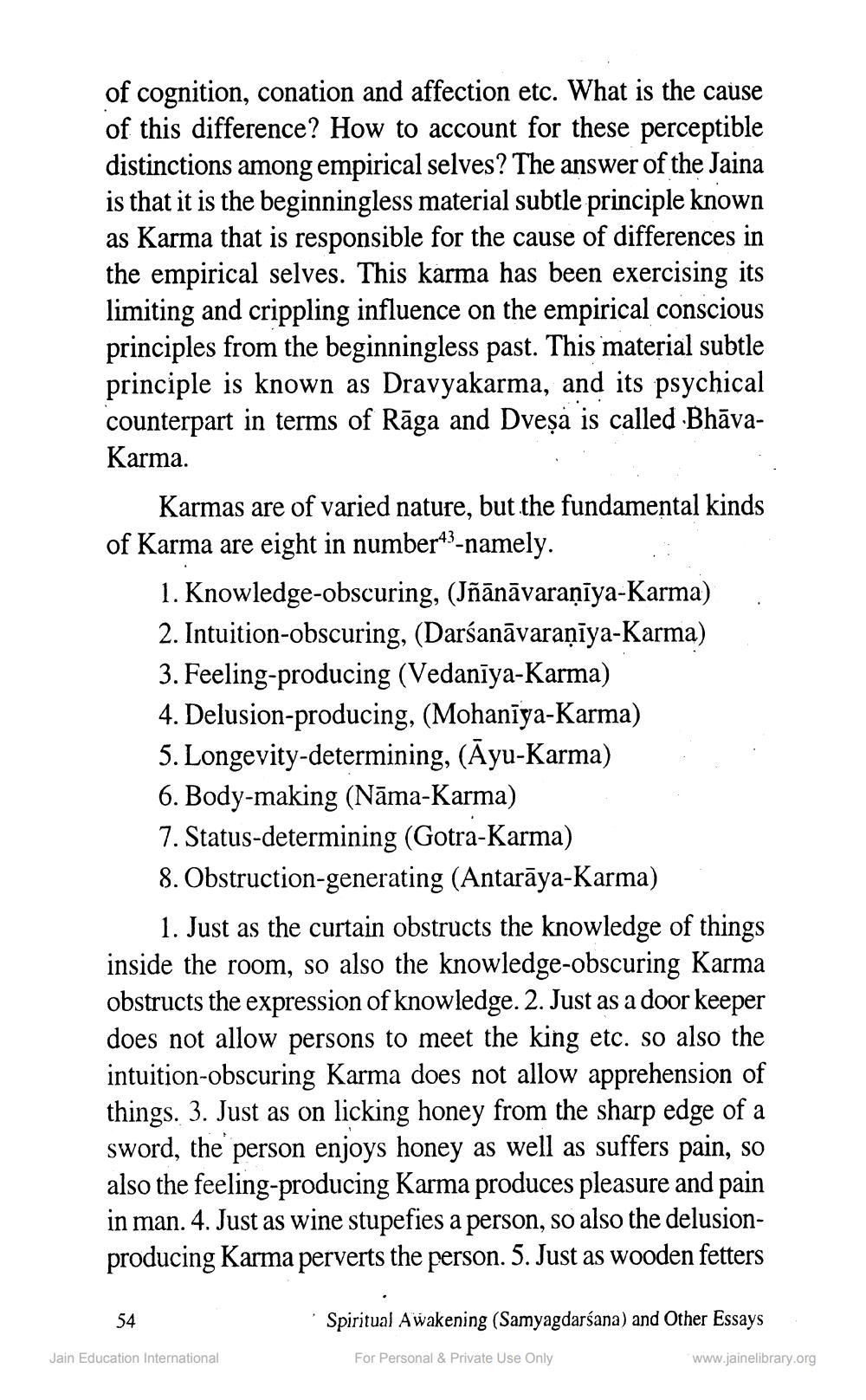________________
of cognition, conation and affection etc. What is the cause of this difference? How to account for these perceptible distinctions among empirical selves? The answer of the Jaina is that it is the beginningless material subtle principle known as Karma that is responsible for the cause of differences in the empirical selves. This karma has been exercising its limiting and crippling influence on the empirical conscious principles from the beginningless past. This material subtle principle is known as Dravyakarma, and its psychical counterpart in terms of Rāga and Dveșa is called BhāvaKarma.
Karmas are of varied nature, but the fundamental kinds of Karma are eight in number*?-namely.
1. Knowledge-obscuring, (Jñānāvaraṇīya-Karma) 2. Intuition-obscuring, (Darśanāvaraṇīya-Karma) 3. Feeling-producing (Vedanīya-Karma) 4. Delusion-producing, (Mohanīya-Karma) 5. Longevity-determining, (Āyu-Karma) 6. Body-making (Nāma-Karma) 7. Status-determining (Gotra-Karma) 8. Obstruction-generating (Antarāya-Karma)
1. Just as the curtain obstructs the knowledge of things inside the room, so also the knowledge-obscuring Karma obstructs the expression of knowledge. 2. Just as a door keeper does not allow persons to meet the king etc. so also the intuition-obscuring Karma does not allow apprehension of things. 3. Just as on licking honey from the sharp edge of a sword, the person enjoys honey as well as suffers pain, so also the feeling-producing Karma produces pleasure and pain in man. 4. Just as wine stupefies a person, so also the delusionproducing Karma perverts the person. 5. Just as wooden fetters
54
Spiritual Awakening (Samyagdarśana) and Other Essays
Jain Education International
For Personal & Private Use Only
www.jainelibrary.org




